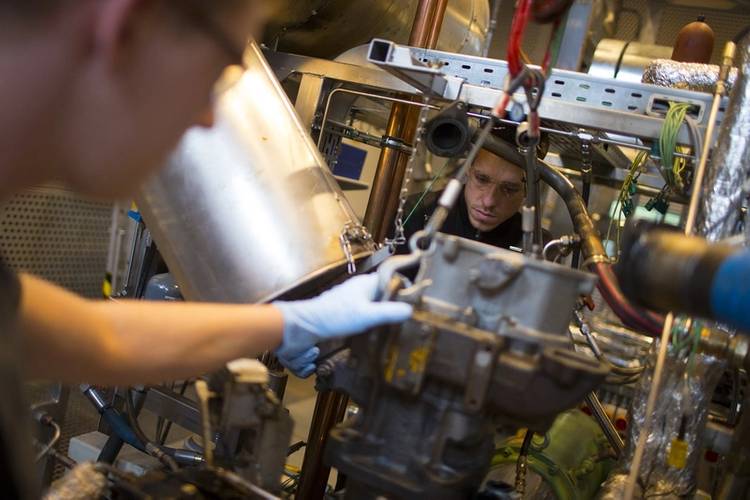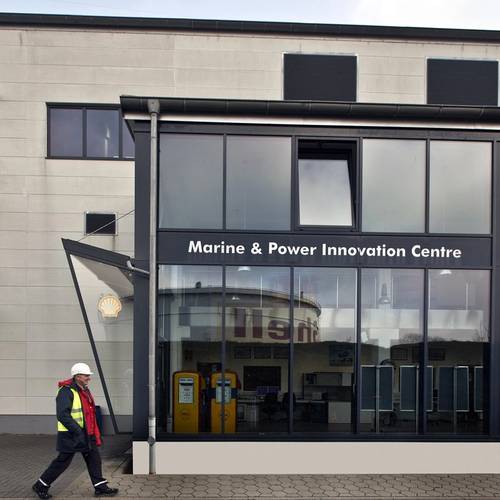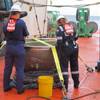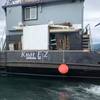Shipowners switching to low sulphur content fuels in line with their obligations in Emissions Control Areas (ECAs) have demanded confidence in the cylinder oils specified to lubricate their engines
The shipping world has been settling down to new restrictions on sulphur content in fuel, introduced after January 1, 2015 in ECAs. Ships in the Baltic Sea, North Sea, English Channel, and waters 200 nautical miles from the coast of U.S. and Canada now need to operate on fuels with a maximum 0.1 percent sulphur content.
European Community of Shipowners Associations Secretary General Patrick Verhoeven reports a “so far, so good” attitude towards the new restrictions. “Our members operating within ECAs have largely switched to marine gas oil, and lower oil prices have made the transition more digestible, even though the differential with heavy fuel oil remains,” Verhoeven said. “There have been no intentional infringements against these rules.”
The main two-stroke engine suppliers have been clear that living with marine gas oil (MGO) requires plant lubrication using specific cylinder oils, so that performance can be assured. In general, these cylinder oils are of the ‘lower BN’ variety. However, the combined regulatory change and commercial pressures that drove slow steaming demonstrated that generalization is the last thing acceptable to OEMs from this critical ingredient in ship engine performance.
As the first supplier to launch a full range of cylinder oils specifically developed for fuels qualified for use in ECAs, Shell Marine Products (SMP) can claim early insight into the way low sulphur fuels used with oils of too high a base number can harm engine efficiency. Many lubricant suppliers have concluded that, where fuel sulphur content is 0.1 percent or lower, the required level of cleanliness requires cylinder oils of 40BN and below. SMP’s answer for two stroke engines has been the 25BN Shell Alexia S3 (SAE50).
“Extended use of conventional, high base number (BN) cylinder lubricants in engines burning low-sulphur fuels may lead to the formation of harmful deposits, potentially resulting in liner scuffing and premature replacement,” said Jan Toschka, General Manager, Shell Marine Products.
“However, it is not only about matching BN to sulphur content. Our intensive research has shown that, in addition to acid stress, the cylinder oil in low-speed, two-stroke engines is exposed to thermal, insolubles and humidity stress. An imbalance between the acid stress a cylinder oil faces and its BN can lead to excessive deposits on piston top lands, rings, and ring grooves, leading to scuffing and cylinder liner damage. This means higher maintenance costs and reduced vessel availability.”
Launched in September 2014, Shell Alexia S3 has been formulated for use with low sulphur and distillate fuels up to 0.5 percent sulphur content. It has secured Letters of No Objection for use from both MAN Diesel & Turbo and Wärtsilä, the shipping industry’s two giants of two stroke engine production and licensing. The letters represent OEM guidance to customers that Shell Alexia S3 is suitable across the full range of two stroke engines running on low sulphur fuel.
Shell Alexia S3 was made available from December 1, 2014, and the company says it has been “pleasantly surprised” by demand. Availability has been quickly expanded to more than 330 ports in 20 countries.
“Faced with impending regulatory change, we made it our business to ensure that shipowners could be confident that they had a reliable source of suitable lubricants well in advance of the January 1 deadline,” Toshka said. “Shell Alexia S3 aligns with the ethos behind the entire Alexia portfolio – finding a solution that brings the customer peace of mind by delivering the right cylinder oil in the right place, at the right time."
Shell Alexia S3 joins a range of cylinder oils for two-stroke marine engines to meet varying engine fuel specifications and different operating conditions. Shell Alexia S5 and S6, both introduced in 2013, are higher BN oils formulated to maximize protection against cold corrosion for vessels experiencing low load conditions when slow steaming, for example. Meanwhile, Shell Alexia S4, launched in 2012, offers flexibility across a wide range of operating conditions, engine types and fuel sulphur contents.
SMP also offers Shell Gadinia as its cylinder oil for low sulphur fuels in four-stroke engine applications, while its Shell Mysella lubricant has been applied to Greenstream, Shell’s and the world’s first 100-percent LNG-powered barge.
All of these oils have benefited from full evaluation at SMP’s Marine Power Innovation Centre (MIPC), Hamburg using test bed engines. Work at the MPIC tests and validates the chemical expertise invested by SMP in its engine lubricants, to balance detergency, protection against deposit build-up and the need to neutralize acid.
Toschka said Shell Alexia S3 is “the critical ‘ECA-specific’ contribution to the continuous dialogue we have with our customers over the oils that best suit the engine and the ship’s operating profile concerned.”
Regulators are considering the further expansion of ECAs, to take in the entire Atlantic seaboard of Europe, the Mediterranean Sea, coastal Korea, the Sea of Japan, the Australian coast, the shipping lanes of Singapore, Malaysia & Indonesia, and the coast of China. Therefore, while ships will be able to continue to use fuels with sulphur content of up to 3.5 percent until 2020 at least, SMP’s expectations are that demand for Shell Alexia S3 will increase.



















